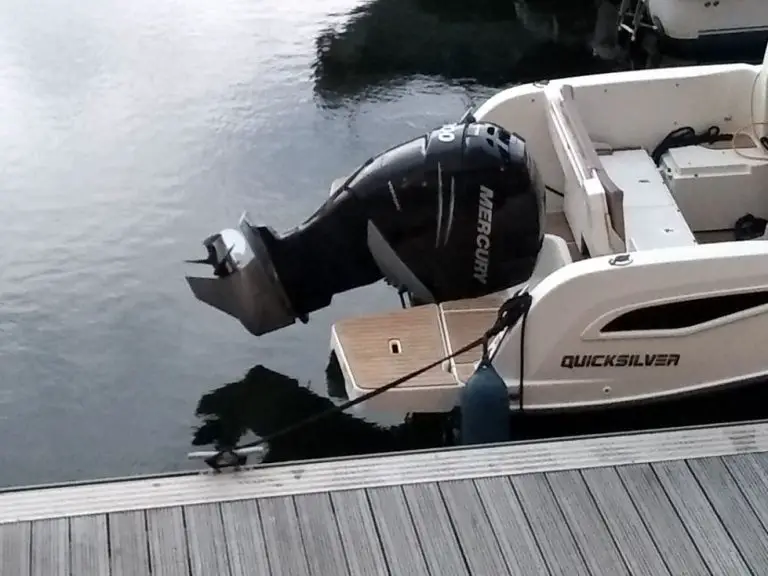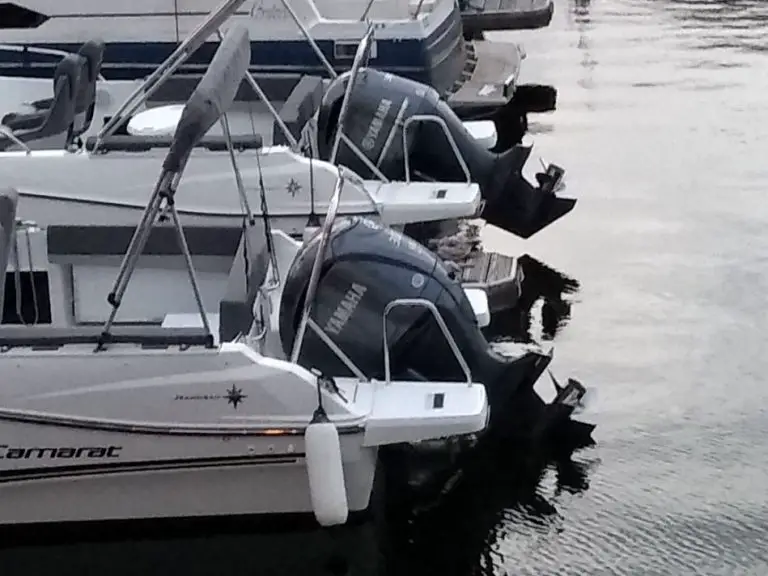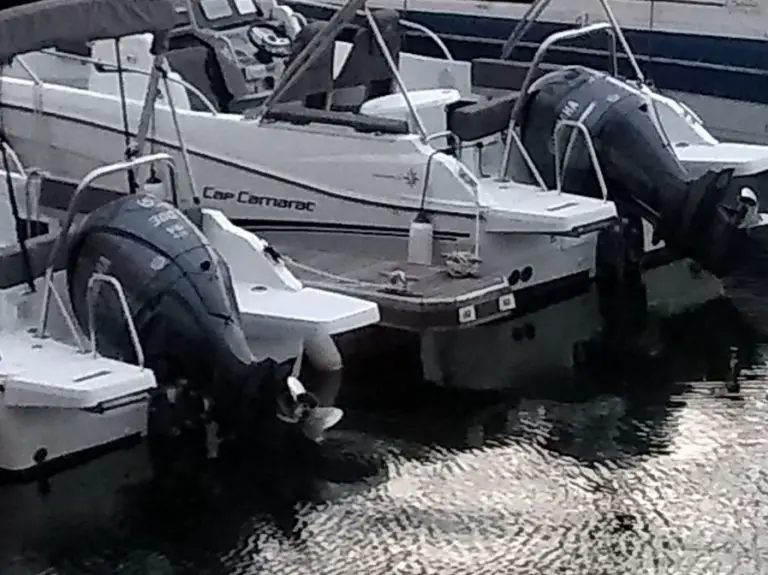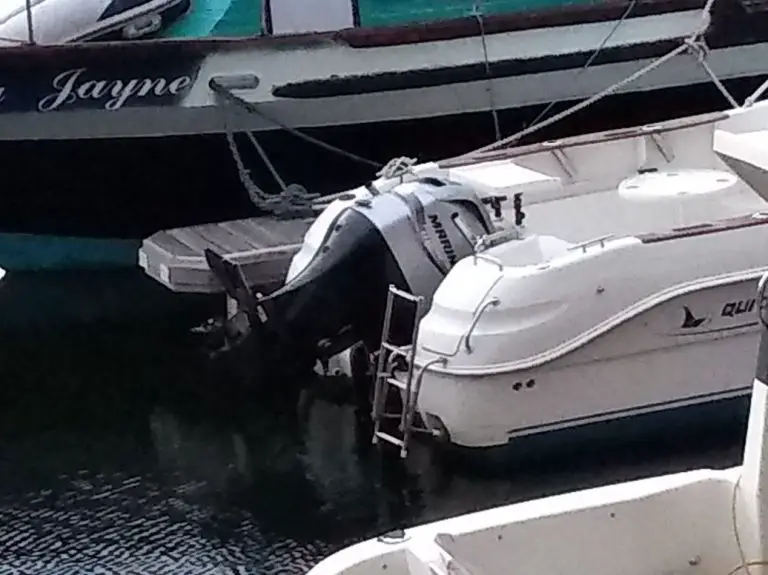Can You Flush an Outboard Motor with Vinegar?
Outboard motor manufacturers recommend that users flush their system with fresh water after every use in salt water, or every month if you are keeping it in storage.
But one of the main problems with using your outboard in salt water is that you get the build up of dried salt that can be corrosive and highly damaging to your outboard, meaning you want to descale it and get it clean good and proper after use.
Vinegar is a common household cleaning products that is considered benign for its natural cleaning properties, hence many outboard owners think of cleaning with this.
Vinegar can be used to flush an outboard motor but it will need another cleaning product to go after it like baking soda. This is because flushing with only diluted vinegar would clean the surface but that same surface would then be left exposed for the next salt water session to really attack it.
Let’s have a look in more detail at the points to consider here.
Flushing Your Outboard Motor After Use in Salt Water
Salt crystalizes inside your outboard and builds up over time within the outboard. This then leads to blockages as the water cannot flow through the outboard properly and it cannot be kept cool.
Things like the outboard’s thermostat may not work or become jammed, which then cause other mechanical problems that mean your outboard stops working properly or can even lead to complete engine failure.
You will want to flush your outboard motor for 15 minutes, as a general rule, although more guidance on how long to flush your outboard can be found in my article on it here.
The video below from Stones Corner Marine of Australia also details what a salt-encrusted and poorly flushed outboard motor will look like – it’s not good!
Vinegar for Flushing an Outboard Motor
Cleaning your outboard motor with vinegar would need to be diluted at the right concentration to make sure it works as each surface it is used on needs a different concentration for it to work.
Since there is very little online about flushing an outboard with vinegar, let’s now look at some points from other areas to get an idea of how flushing your outboard motor with vinegar might work and also further points to consider before you use it.
Thoughts on Cleaning with Vinegar from Other Domains
The Spruce blog talks about vinegar as an effective cleaner for metal, which seemingly fits with the idea of putting it through your outboard.
However, Good Housekeeping magazine notes that there are several household items you should never clean with vinegar, namely an iron because it may damage the internal components.
This may be due to its impact on the electronic components inside, but it is not stated. Still, the contrast between the two is a little concerning.
The same article also lists vinegar in different concentrations for each item, so applying this to cleaning an outboard motor would mean gauging based on good sense.
The likely solution for cleaning your outboard would be on the conservative side, say
Vinegar Is Not Effective for Cleaning Your Outboard
White vinegar can remove mineral deposits but this is stated to be only from keeping the vinegar on the surface in an undiluted form for an extended period of time.
To apply this to flushing your motor would likely mean that it will likely struggle to remove the salt inside the outboard, which is the main point of flushing.
Vinegar Might Discolour Parts of Your Outboard
Submerging items in vinegar to remove rust is known to leave them black for a short period after cleaning, with them returning to their original color later on.
This means that you may see some temporary discoloration after using vinegar on your outboard, but with this being only temporary and only for the internal components, it’s not likely to be an issue, just something to be aware of.
Cost Comparison of Vinegar vs Salt Remover for Boats
To get a better idea of effectiveness, it’s also worth comparing the price of vinegar with the alternatives to see how they stack up.
- Searching for ‘white vinegar 1 gallon for cleaning’ on Amazon shows a price of around $12 per gallon.
- Remember that this would only be used for flushing in a diluted form.
- Searching Amazon for ‘salt remover for boats’ gives a price of around $50 per gallon.
To make it clearer, here’s a comparison of cleaning your outboard with a commercial salt remover versus buying standard white vinegar for cleaning.
| Product | Price per gallon | Notes |
| White vinegar | $12 | Must be diluted. No added cleaning properties. |
| Salt remover for boats | $50 | Must be diluted. Many added cleaning properties. Designed for boats and engines. |
Note that the salt remover is in concentrated form, meaning that you would use it in a similar way to vinegar, although it is more powerful.
Salt remover cleaning products also come with added elements to provide protection from rust in the future as well as having a ‘surfactant effect’, meaning that they actively break down elements in the cleaning process; vinegar does not have this same effect.
As David Guion writes on his sustainability blog, vinegar does not work for cleaning everyday dirt and grime, so it’s unlikely to be of much use for cleaning out salt when flushed through your outboard.
Elsewhere online, other boating enthusiasts have suggested flushing an outboard using vinegar followed by baking soda to neutralize the surface to avoid it having a negative effect are use, yet this has two problems.
- Following a flush using vinegar by adding baking soda would still need another clean to make sure no deposits are left from the baking soda, meaning another flush
- Vinegar and baking soda do not work well together for cleaning purposes, despite what many people think, as noted by Guion
Veridct: What’s the Better Option for Flushing Cleaning Product?
Salt remover is a better option than vinegar for flushing your outboard since most brands of salt remover are biodegradable, so they have similar eco credentials to vinegar and they are made specifically for cleaning boats. They are concentrated, so they go further, too.
Although vinegar sounds tempting, it seems that buying a salt remover for boats (Amazon) is a better option than buying vinegar given the points above.





